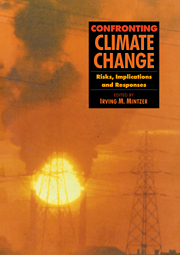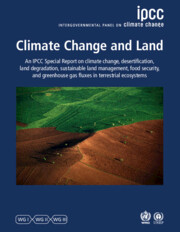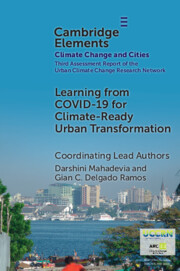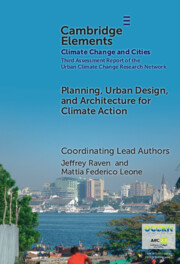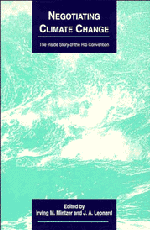Confronting Climate Change
This book, which was published in time for the Earth Summit in Brazil in June 1992, is likely to make a huge impact on the political and economic agendas of international policy makers. It summarizes the scientific findings of Working Group I of the IPCC in the first part of the book. While acknowledging the uncertainties in subsequent chapters, it challenges and expands upon the existing views on how we should tackle the problems of climate change.
- The best contributors in the world
- Emphasis on developing countries
Reviews & endorsements
"This authoritative, up-to-date and superbly produced book examines the risks, dilemmas and opportunities of the emerging political era in a warming world, focusing on the possible dangers of climate change, the reliability of this knowledge and the best ways to respond to the changes....with its level of commitment, expertise and specialization, this book cannot fail to become the leading statement on the consequences of climate change in the foreseeable future." Russell D. Thompson, Nature
"A noteworthy and influential book....The book is a survey of the best available answers to the questions of the extent and reliability of our knowledge of the foreseeable dangers and the best responses to make in order to avert or minimize them. A must for any library with readers who are either scientifically or sociopolitically literate or who seek to understand the mechanisms of the atmosphere and the influence of human activity upon it." A.R. Upgren Jr., Choice
"...a useful status report on such key climate change issues as the underlying scientific knowns, unknowns, and speculative judgments; the potential impacts of greenhouse warming--on hydrology and agriculture, for example; the technological opportunities and needed policy changes to facilitate more environmentally friendly energy use; and, closely related, the extent to which questions of economic efficiency, institutional change, social equity, and international negotiating strategies intrude--positively or negatively--upon achieving more reassuring climatic futures....a collection of considerable merit." Joel Darmstadter, Environment
Product details
June 1992Paperback
9780521421096
400 pages
299 × 212 × 20 mm
1.065kg
70 b/w illus. 25 tables
Available
Table of Contents
- 1. Living in a warming world
- Part I. The Science of Climate Change:
- 2. Linkages between global warming, ozone depletion, acid deposition, and other aspects of global environmental change
- 3. Climate sensitivity, climate feedbacks and policy implications
- 4. Lessons from the ice cores: rapid climate changes during the last 160,000 years
- 5. Changes in climates of the past: lessons for the future
- 6. Indices and indicators of climate change: issues of detection, validation and climate sensitivity
- Part II. Impacts of Climate Change:
- 7. Future sea level rise: environmental and socio-political considerations
- 8. Effects of climate change on food production
- 9. Effects of climate change on shared fresh water resources
- 10. Effects of climate change on weather-related disasters
- 11. The effect of changing climate on population
- Part III. Energy Use and Technology:
- 12. The energy predicament in perspective
- 13. Electricity: technological opportunities and management challenges to achieving a low-emissions future
- 14. Transportation in developing nations: managing the institutional and technological transition to a low-emissions future
- Part IV. Economics and the Role of Institutions:
- 15. The economics of near-term reductions in greenhouse gases
- 16. 'Wait and see' versus 'No regrets': comparing the costs of economic strategies
- 17. International organizations in a warming world: building a global climate regime
- 18. Modifying the mandate of existing institutions: NGOs
- 19. Modifying the mandate of existing institutions: corporations
- 20. International trade, technology transfer, and climate change
- Part V. Equity Considerations and Future Negotiations:
- 21. Sharing the burden
- 22. Climate negotiations: the North South perspective
- 23. Shaping institutions to build a new partnership: lessons from the past and a vision for the future.

